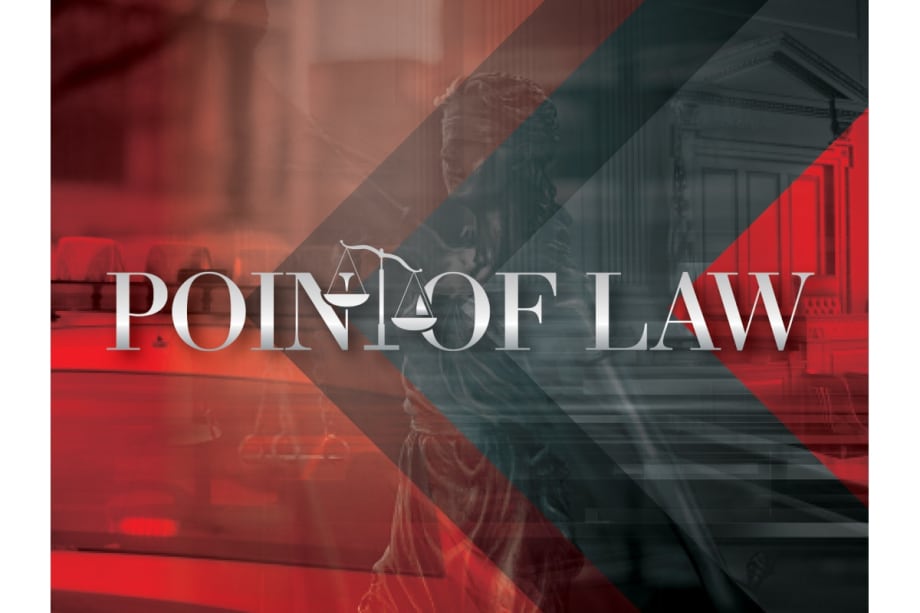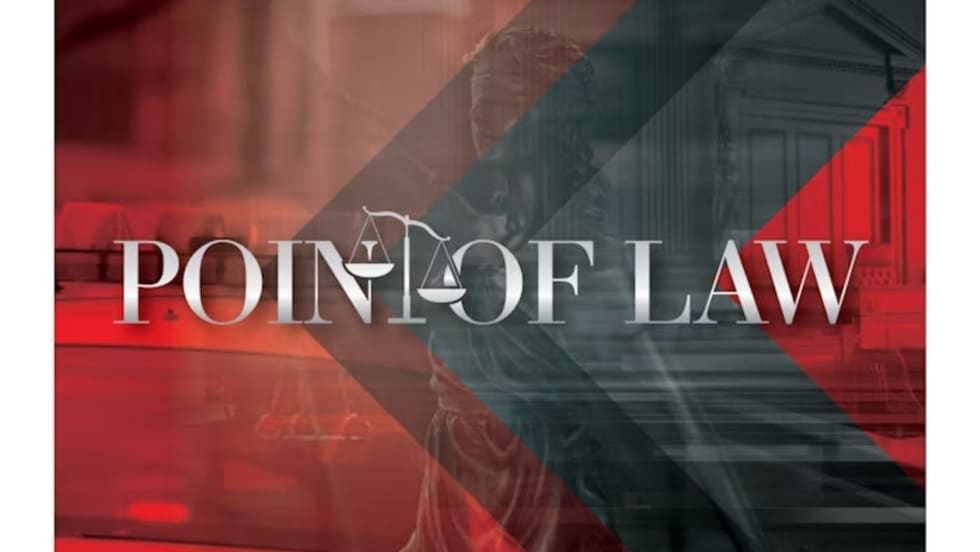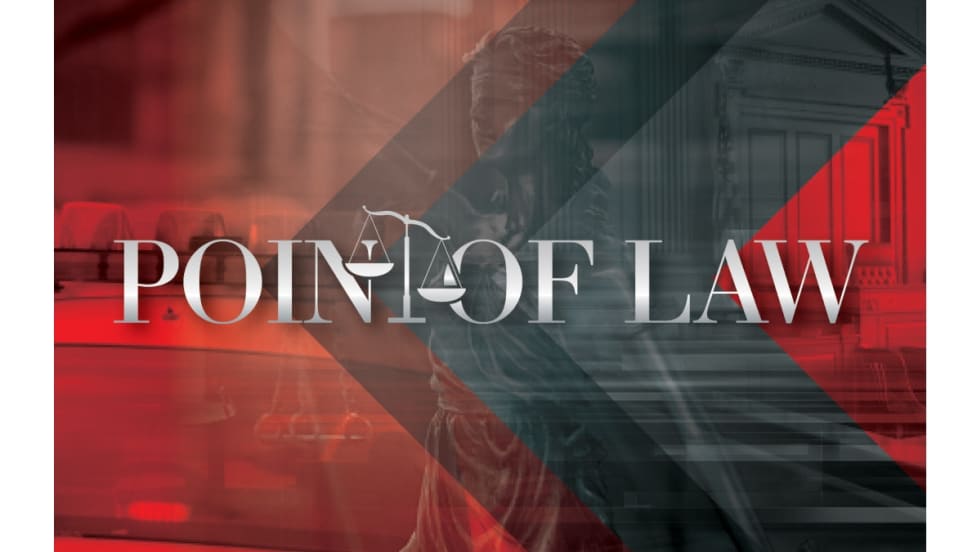In a world where every decision counts, understanding the nuances of Duty of Care, a topic of paramount importance in today’s fast-evolving legal landscape, has never been more critical. As we stand at the juncture of change and responsibility, we must address the pressing, highly controversial question: “Do officers have a duty of care to intervene in crises, and what constitutes this duty in the contemporary landscape of law enforcement?”
Point of Law: The Duty of Care in Law Enforcement
Officers need to understand the important difference between moral obligation and legal duty.

POLICE
Subject and Suspect
The Duty of Care concept is a pivotal starting point for discussion. This concept significantly manifests itself in scenarios involving criminal and non-criminal barricades, where differentiation between “suspect” and “subject” language goes beyond semantics; it forms the foundation for assessing governmental interest and foreseeing potential liabilities for officers.
Duty of Care brings to the fore the multifaceted challenges officers encounter daily, requiring officers to navigate the thin line between moral obligation and legal duty. This balancing act demands both knowledge and training. Transitioning from historical approaches, which often inclined towards direct intervention and the possible culmination in deadly force, to modern strategies that prioritize de-escalation and scrutinize the role of armed officers during crises.
The debate around the duty of care often centers on officers’ moral versus legal obligations. While an innate moral duty exists to serve and protect, it does not consistently translate into a legal obligation to shield individuals from possible harm. Such debates get further complicated when discussing the distinction between terms like “suspect” and “subject,” each carrying its weight in determining force levels, governmental interests, and anticipated outcomes. A recent case, Escobedo v. Bender (600 F.3d 770, 7th Cir. 2010), brought to the fore the significance of distinguishing “suspect” versus “subject” under the duty of care doctrine.
In Escobedo, officers responded to a suicidal subject call and employed deadly force, leading to the death of a non-criminal subject. This case notified officers that response using this level of force when the person is a non-criminal subject, only threatening self-harm, will result in liability for the officer. The Community Caretaker Function and the Emergency Aid Doctrine offer officers some leeway, allowing interventions even when no explicit criminal activity is evident. Conversely, the State Created Danger Principle holds officers accountable if their actions or lack thereof escalate danger.
Tracing the history of Duty of Care through case law is critical to understanding the shifting responsibilities of our law enforcement officers. These cases serve as the foundation for this topic, as they have significantly influenced and shaped our understanding of the complexities of officers’ duty of care.
Case Law
The case of South v. Maryland (59 U.S. 396, 1855) way back in 1855 initiated the conversation around this duty, establishing the concept that a duty to all is a duty to no one. After the plaintiff was kidnapped and held for ransom, the individual contended that the sheriff knew about the incident but neglected to “protect and defend” him. The Supreme Court explained that the sheriff owed no duty to the plaintiff because the individual plaintiffs’ rights were not “restrained or hindered by the malicious act of the sheriff.” Instead, to prevail, the plaintiff must show that a police agency had a specific duty to the individual plaintiff rather than the public at large. The court emphasized the sheriff’s duty to the general public is to act reasonably and that while law enforcement has a generalized duty towards the public, this doesn’t equate to a particular legal obligation towards individual citizens.
The Court’s decision in Warren v. District of Columbia (444 A.2d 1 D.C. 1981) more than a century after the South ruling reinforced this notion. Upon noticing that an intruder had entered their boarding house, three women called the police during the intrusion. Police arrived at the home, but the officers left when no one answered the door. Because the plaintiffs had no special relationship with the police department, there was no duty upon the police officers working for the department to provide protective services to the women. Absent the existence of a special relationship, no specific legal duty exists. This case emphasized that the duty to offer public services is to the collective public and not to distinct individuals, which often shields the police from potential liabilities.
No Special Duty
DeShaney v. Winnebago County (489 US 189, 1989) marked a defining moment when the Supreme Court tackled a critical question that affects law enforcement across the country: When is the State, or by extension, a law enforcement agency, responsible for harm caused by a third party?
The case revolved around a young boy living with his father. Concerns arose when the father’s second wife reported potential abuse to the Department of Social Services (DSS). Although DSS initially took the child into protective custody after an incident, they returned him to his father, citing insufficient evidence for ongoing state involvement. In the following months, DSS made several attempts to check on the boy, but the father consistently provided reasons for their inability to see him, like the child being unwell. The situation took a turn at this point. After suffering a severe beating from his father, the young boy was hospitalized and left in a coma.
The child’s mother sued DSS, stating they failed to protect her son. A critical factor was that the boy was under his father’s care, not DSS’s custody, during the incident. In this case, the Supreme Court’s verdict is essential for law enforcement officers. The Court ruled that the State, and by extension, agencies like DSS, are not automatically responsible for protecting citizens from harm caused by third party private individuals unless a specific relationship existed or the State created the risk. This case established that the Due Process Clause does not impose a special duty on law enforcement for harm caused by third parties.
Suicidal Subjects
The Adams v. City of Fremont (80 Cal.Rptr.2d 196, Cal App. 1998) case clarified the duty concerning individuals contemplating self-harm. In this case, a person with suicidal tendencies engaged in a standoff with police while armed with a gun. Amid the chaos, the individual shot himself before the officers, who mistakenly believed he was firing at them, shot him.
The Court considered the city’s liability for not preventing the death of an armed, suicidal person during a police standoff. The Court held that police officers responding to a crisis involving a person threatening suicide with a loaded firearm have no legal duty under tort law that will expose them to liability if their conduct fails to prevent the threatened suicide from being carried out.
Restraining Orders
A further principle in the understanding of Duty of Care comes with the Castle Rock v. Gonzales (545 US 748, 2005) case. Here, Jessica Gonzales had obtained a restraining order against her estranged husband, barring him from being near her or their kids. However, he defied this order and abducted the children, to which Gonzales repeatedly urged the police to enforce the order. This led to a tragic sequence of events, resulting in the death of the children and the estranged husband.
Gonzales sued the town of Castle Rock for failing to enforce the restraining order she had in place. The Court found that Gonzales did not possess a constitutionally protected property interest in enforcing the restraining order. In essence, while restraining orders are legally enforceable, they might not be seen as a constitutional property interest, and here, this barred Gonzales from claiming that the police had violated her right to due process.
Law enforcement officers must scrutinize how the concept of “duty of care” is actively reshaping our understanding of liability and duty, steering the trajectory of law enforcement’s evolving responsibilities towards individuals and society while upholding our duty to protect and serve.
Eric Daigle is founder of Daigle Law Group, LLC, a firm that specializes in law enforcement operations. A former Connecticut State Police officer, Daigle focuses on civil rights actions, including police misconduct litigation. He is a legal advisor for police agencies across the country and a member of the POLICE Advisory Board.
More Point of Law

Point of Law: The Limits of Electronic Searches
Can an individual be prosecuted for despicable criminal conduct based on evidence obtained in violation of the United States Constitution? Ultimately, the Ninth Circuit judges wrote, “In the circumstances of this case (United States v. Holcomb, 23-469 (9th Cir. 2025)), respect for the Constitution and the rule of law requires an answer of “no.”
Read More →
Trump Issues Order Cutting Federal Funding in Cashless Bail Jurisdictions
<strong>“</strong>Cashless bail policies allow dangerous individuals to immediately return to the streets and further endanger law-abiding, hard-working Americans because they know our laws will not be enforced,” the administration said.
Read More →
Justice Department Sues Los Angeles Over Sanctuary Policies
The DOJ said in a press release that the “sanctuary city” policies of the City of Los Angeles are illegal under federal law.
Read More →
Understanding Officer-Created Jeopardy
Officers can be criminally prosecuted for using force when their actions led to escalation during contact with subjects.
Read More →
Point of Law: The Limitations of Search Warrants
In the Tenth Circuit case of Cuervo v. Sorenson, the Court ruled officers cannot deviate from the language of the warrant.
Read More →
DOJ Dismisses Consent Decrees Affecting Louisville and Minneapolis Police
The Civil Rights Division will be taking all necessary steps to dismiss the Louisville and Minneapolis lawsuits with prejudice, to close the underlying investigations into the Louisville and Minneapolis police departments.
Read More →
New Michigan Bill would Give Officers Civil Immunity in Self-Defense Cases
House Bill 4404 would create a presumption of civil immunity for individuals who are cleared criminally after using force in self-defense, shifting the burden of proof onto plaintiffs.
Read More →
Seattle to Pay Police Captain $1 Million to Settle Lawsuit
Seattle police Capt. Eric Greening sued former Chief Adrian Diaz last year alleging that Diaz retaliated when Greening brought up concerns about racial and gender discrimination.
Read More →
Washington Agencies Ordered to Not Delete Critical Facebook Contents
Jim Leighty, a local activist, filed two federal lawsuits last year claiming both agencies deleted or hid critical comments he had written below multiple posts, while keeping comments that were pro-police in nature.
Read More →
Washington State Attorney General Sues Sheriff for Helping Immigration Enforcement
The lawsuit claims the Adams County Sheriff’s Office has illegally held people in custody based only on their immigration status, helped federal agents question people in custody, and given immigration officials confidential personal information.
Read More →
